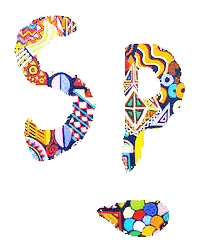The sophistication of Wildlife, the selective ignorance of Man
- Stephen Hornsby-Smith

- Mar 28, 2014
- 2 min read
Humans have a great capacity to under-value and disrespect our genetic, if residual, inheritance and part of a food chain with other red-blooded mammalian wildlife. This provides us with a dilemma. Descartes claimed that we humans have sufficient brains to command all other wildlife. His maxim ‘I think therefore I am’, does not sit easily with Darwin’s ‘Origin of Species’, where humans evolved from the apes that Descartes was so dismissive about. Just as Descartes underestimated human animal instinct, we have for centuries tried to rationalize away human mammalian instincts, skills and behaviour.
Here is a further paradox: Human development and self- awareness is greatly advanced by our increasing grasp of, for example, the behaviour of a pride of lions, whilst concurrently human activity is disowning our behavioural inheritance, attempting to airbrush-out our animal instincts. Instead of some greater vision of what we could learn from wildlife, we are retreating to our anti-social habitat and then claiming we are superior. Hobbes was terrified by ‘a state of nature’, where no fabric of society is present and violent chaos prevails. But ‘Tiger tiger burning bright’ should enlighten us rather than burden us with fears of Golding’s ‘Lord of the Flies’ and Bertrand Russell’s despair at man’s capacity for self-destruction.
Ironically the difference of lawless mob rule in the French Revolution under Robespierre, and the genocide of Rwanda more recently sharply contrasts with a Pride of Lions; here there is a social order, a leader of the pack, a chain of command that hunts with almost regimented precision and mutual benefit.
So how can humans mutilate intelligent ‘relatives’ for body parts? How can humans offend the food chain? Why can’t humans only hunt what they eat? The market in the human habitat is for dubious medicinal purposes, even based on superstition. A Pride of lions is not superstitious or irrational, but wild – that is it has true freedom to roam, taking only what it needs from the environment, and leaving the remnants of a ‘kill’ to the rest of the foodchain. This management by nature is inclusive and self-sustaining. Greed, corruption and perverse irresponsibility of the poacher is an anti-social behaviour of envy, social anxiety and behavioural repression, reflecting Man’s inability to deal with himself and his failings.
But I’m an artist, and I’ll leave the political resolutions of such issues to those who can’t do anything else. Let us hope that they won’t be hunted to the point of extinction.









Comments